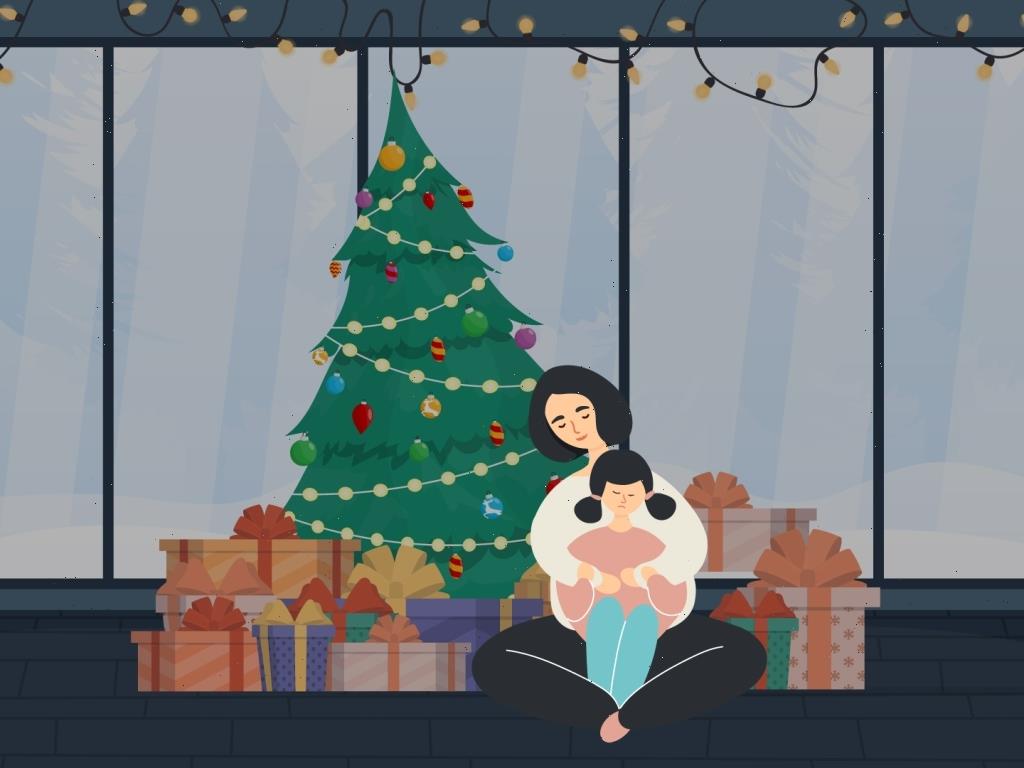I’ll never forget the holiday season when we had three children under age four. There were those beautiful moments — where they had on their matching pjs and opened gifts — and we snapped photos. However, the majority of “the most wonderful time of the year” was incredibly stressful.
Another reason the holidays have been challenging for our family is that we are coping with various diagnoses — special needs — that can complicate even the most “merry and bright” holiday plans. Holiday light displays with blaring, synchronized Christmas music might be magical for some kids, while for others, they are a sensory storm. Kids with anxiety, ADHD, autism, sensory processing disorder, and other needs can have a very, very hard time during the holidays. (Don’t get me started on the lack of wheelchair or other mobile aide accessibility.)
While many of us enjoy the buffet of Christmas cookies, the thrill of a White Elephant gift exchange, or the hustle and bustle of shopping, other families simply cannot. Their kids cannot handle the sights, sounds, smells, tastes, and textures that these “magical” experiences bring. Pair this with the lack of adequate sleep, off-routine meal times, too much sugar, and lots of running around, and the holidays can quickly go from a winter wonderland to The Nightmare Before Christmas.
I admit that there were times when I felt disheartened that I couldn’t give my family a “normal” holiday — you know, like one from a Hallmark movie. I wanted a gentle snowfall, hugs and hot cocoa with relatives, ugly Christmas sweaters, Santa photo shoots, and pleasant gift exchanges, where we patiently watch each other open gifts, one by one. I had to adapt my expectations and put up some serious boundaries. Once I learned to do this, our holidays became calmer.
Identify Your Child’s Triggers
Take some time to figure out what triggers your child. Is it certain sensory stimuli? It could be a particular environment — such as a house where relatives have several (barking and busy) dogs or the home is overcrowded and too warm. Maybe it’s the time of day that a holiday celebration is held, which coincides with (or gets way too close to) your child’s bedtime or dinnertime, or the event occurs just as their medication is wearing off. Identifying your child’s triggers will help you plan your holiday season. What has consistently caused your child to struggle in the past? Once you identify this, you can predict what’s bound to cause struggles in the future — and how to avoid them.
Figure Out What Helps
What tools or techniques help your child with their triggers? For example, my child with sensory issues easily becomes overwhelmed by loud noises. Noise cancelling headphones or ear buds playing their favorite music to save the day! Other tools can include a weighted blanket, chewing gum, a fidget toy. Sometimes, though, even these tools simply aren’t enough. Plan to keep your child well-fed, well-hydrated, and well-rested, even if this means saying no to certain events, arriving late, or only staying a short time. Comfort items can be helpful (like a favorite stuffed animal), as well as making sure your child is dressed in comfortable clothing. If you must take holiday photos, bring a cozy change of clothes for your child to put on right after. Likewise, outdoor time that allows for gross motor play can help a child stay regulated.
Say What Your Family Needs — Without Apology
You don’t need to apologize for meeting your child’s needs. In fact, happy kids, happy parents — and thus, happier events. Don’t let anyone guilt-trip you. You’ll regret it! Simply state what’s going to work for your family, and then stick to it. Even though traditions can be fun and nostalgic (think late night mass), if it’s going to result in a major meltdown, it’s not worth it. Don’t force your child to engage with relatives — especially those they rarely see — including sit at a noisy dinner table or in the living room unwrapping gifts for hours. If necessary and possible, maybe one parent attends with some of the kids while the other keeps the child with needs at home — with a holiday movie, pajamas, and a snack.
Prepare Your Child
Visual schedules or checklists are very helpful for kids who need predictability. You can also come up with a code word for kids who may either need a break during a holiday event or absolutely need to leave. When you arrive at your holiday gathering, take some time to establish a quiet space (one you’ve pre-arranged with the host) where your child can go if needed, such as a spare bedroom or hallway. Don’t wait for a problem and then brainstorm solutions. Be proactive. Empower your child to have a say in how their time will be spent, and what helps them feel safe and calm.
Consider Alternatives
Your child shouldn’t be obligated to attend every holiday event that interests you — particularly if that event, no matter how prepared you are, is going to cause a spiral. Decide if it would be better to get your child a babysitter, if you can skip some of the less important events altogether, or get a hotel room instead of staying with relatives in their home. Ask yourself what’s going to be best for the whole family so that everyone can enjoy the holiday season.
I have found that parents are the ones who have the hardest time letting go of “the way it’s always been.” I understand the disappointment that comes with unmet expectations of a magical holiday season — and the guilt some relatives can lay on you when you decide to forgo a traditional holiday gathering. However, with pre-planning, children with special needs and their families can have a lovely holiday — no matter what it looks like.
Source: Read Full Article

